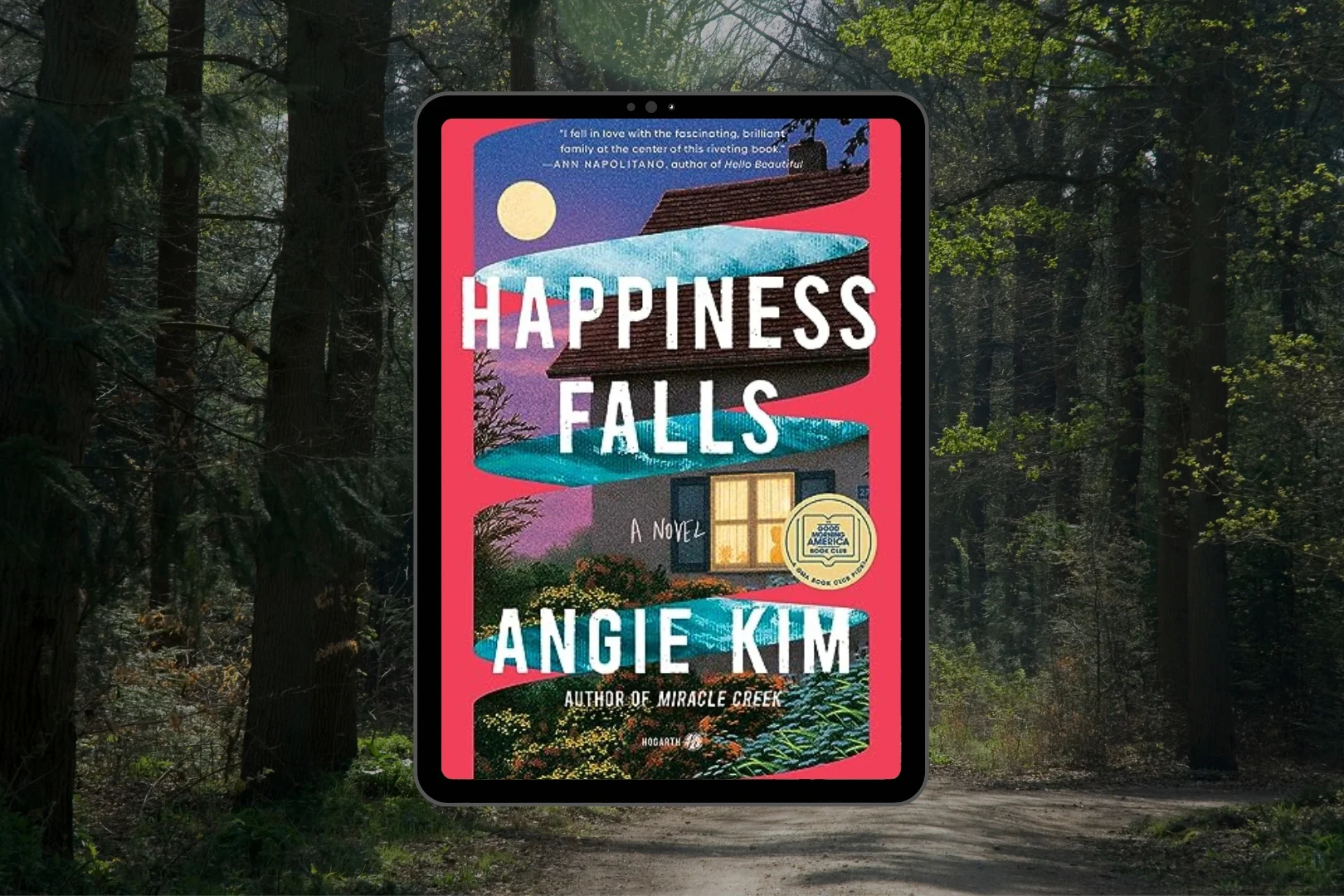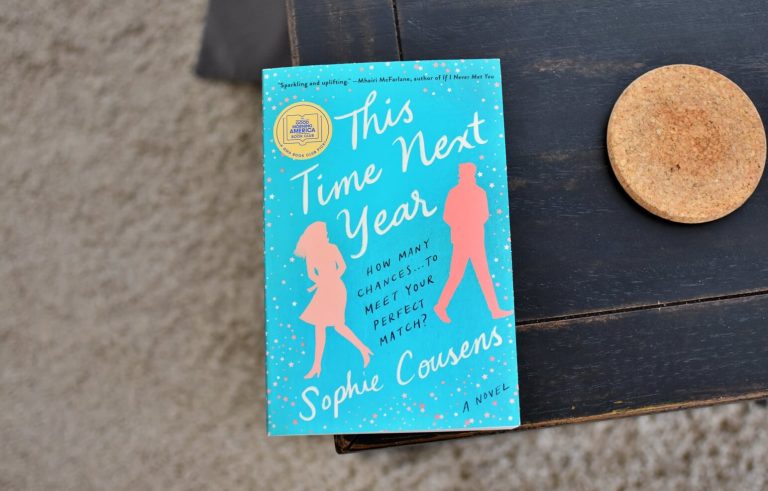Editorial note: I received a copy of Happiness Falls in exchange for a review. All opinions are my own.
Happiness Falls by Angie Kim is an impactful and insightful novel about a family in crisis.
I was such a big fan of Angie Kim’s debut novel, Miracle Creek. The story is part mystery, a riveting courtroom drama, character study, a focus of the complicated dynamic between mothers and children, and an examination of the immigrant process to the U.S.–it’s fascinating and I highly recommend it.
And I feel Happiness Falls is even better. Again, this novel covers so many topics—language, family, communication, the pandemic, racism—all with the backdrop of a missing person’s case. Angie Kim has proven to be a masterful storyteller with a focus on humanity.
What’s the Story About
The novel follows a biracial Korean American family in Virginia whose lives are upended when their beloved father and husband goes missing. We read the story from the perspective of Mia, the 20-year-old daughter who is home from college due to the pandemic. She at first isn’t concerned when her father and younger brother Eugene don’t return from a walk in a nearby park.
However, then Eugene runs through the front door bloody and alone. It’s clear their father is missing, however, Eugene has the rare genetic condition Angelman syndrome and cannot speak. So the family doesn’t know what happened.
What follows is both a ticking-clock investigation into the whereabouts of a father and an emotionally rich portrait of a family whose most personal secrets just may be at the heart of his disappearance.
The Mystery
The mystery of their missing father and husband is what drives this story forward. It truly is a perplexing web as more and more get discovered. Like every family, this one has plenty of secrets—even from each other. And so we go along this journey with Mia in anticipation of what happened to her father.
I felt the story did well balancing the mystery with the family dynamics. Each chapter reveals just enough to keep us guessing.
I’ve read a couple stories that take place during the pandemic and I don’t always love revisiting that time period. But I actually thought it served quite well here. It gave a reason why these college-aged kids are back home and it also added quite a lot of tension.
It was just a reminder about how in those early days, any in-person interaction brought a level of fear. And being able to truly conduct the investigation during the pandemic, throws up all kinds of roadblocks.
Communication
A major storyline of the novel is about communication. Eugene, almost a teenager, is not able to verbally speak as he has the rare genetic condition Angelman syndrome. Because of this, his family treats him similar to a nonverbal toddler. His lessons are like a preschool program and he spends a lot of time watching cartoons and such on the iPad to help soothe him.
Life is difficult for the family. Caring for Eugene requires so much of the entire family and that creates other complicated dynamics as well.
We also learn about Mia’s mother moving to the U.S. from Korea and the difficulty she had with a different language. She felt people in the U.S. judged her and it had a lasting impact.
It’s heartbreaking to read about these two very impactful aspects of verbal communication difficulties. I do think society seems to view nonverbal or people not fluent in their own language as perhaps not as intelligent as others. It’s very sad to read about and also know that people do have those prejudices in real life.
I do feel Happiness Falls shines an important light on this issue and why it’s unfair to judge someone who isn’t communicating like society anticipates them to.
Verdict
This is a hard read but an important one. It’s one of those that really will stick with you for a long time. I don’t tend to stay up too late reading books these days as I have an active 2-year-old but I just had to know how it would end.
I thought the combination of the mystery along with a focus on communication was so inventive and thought-provoking. Another must-read from Angie Kim.
For book clubs, check out my discussion questions here.






